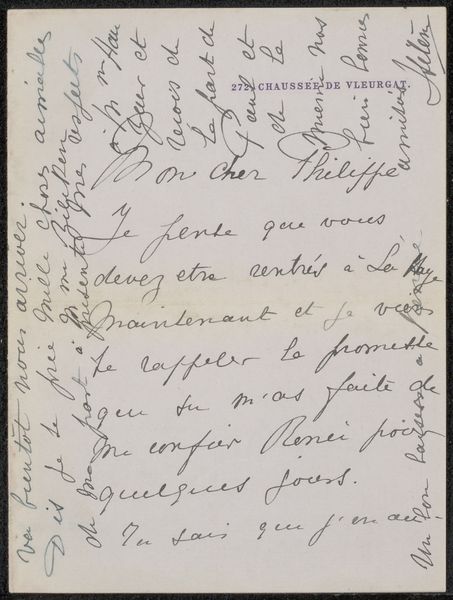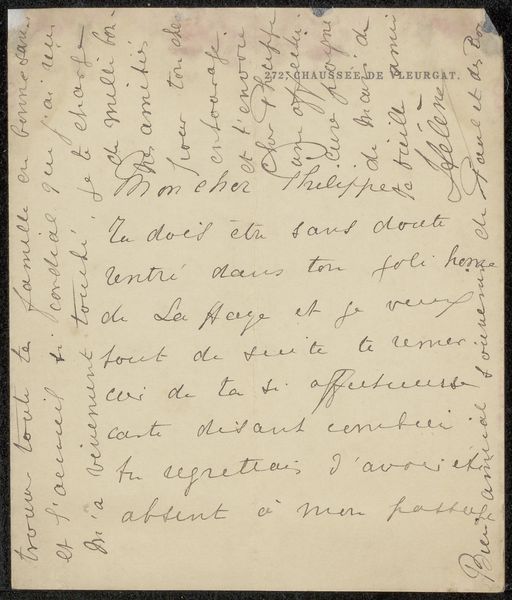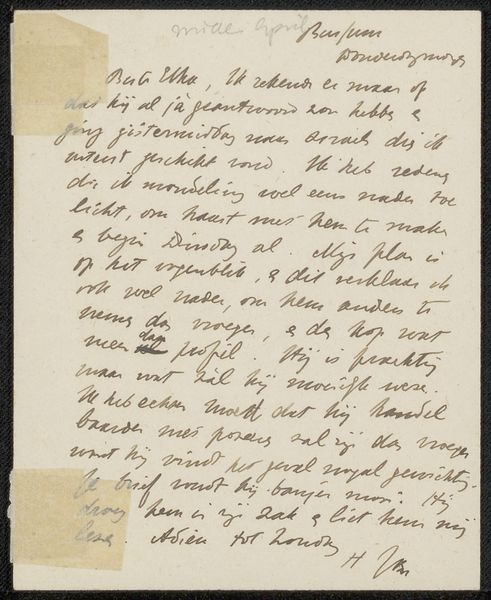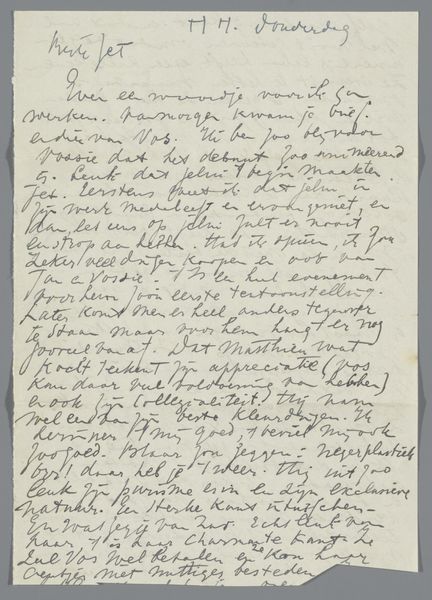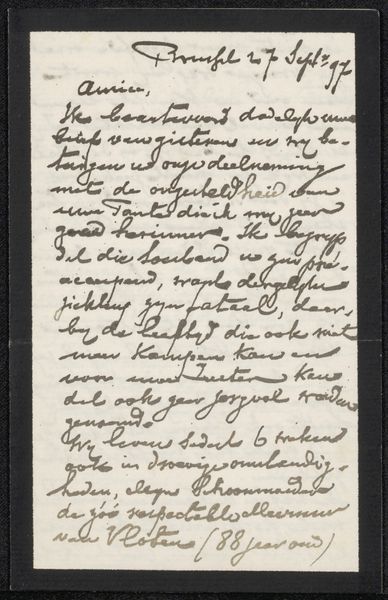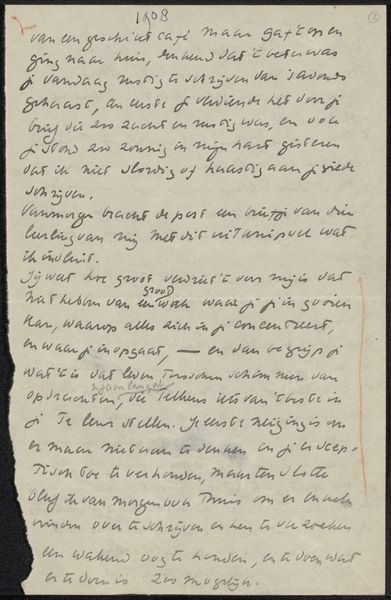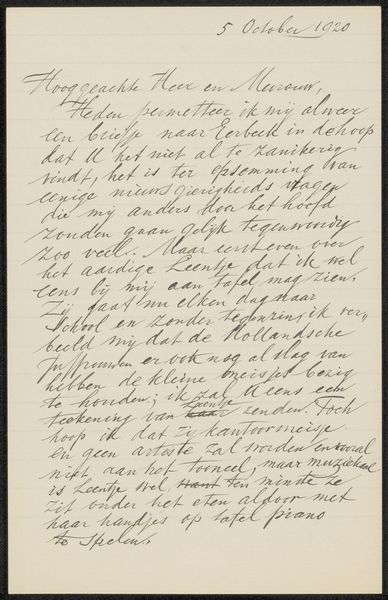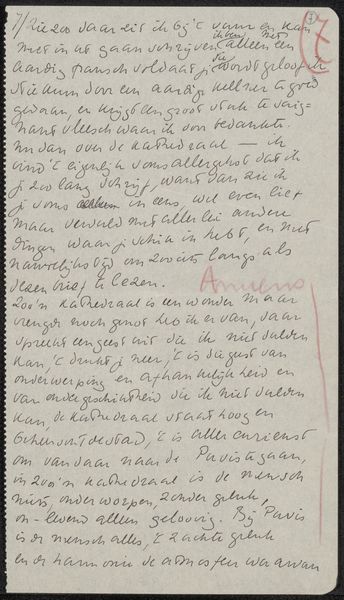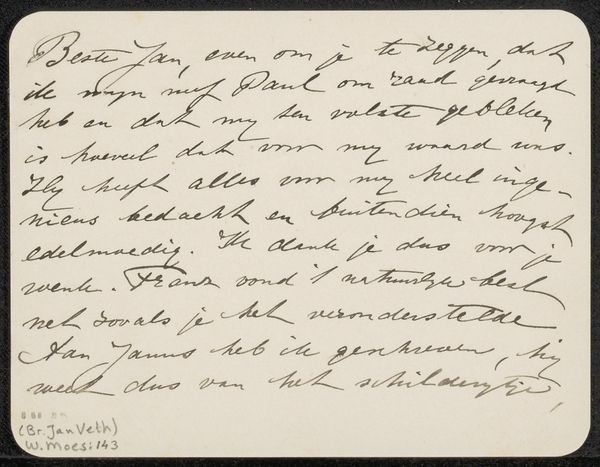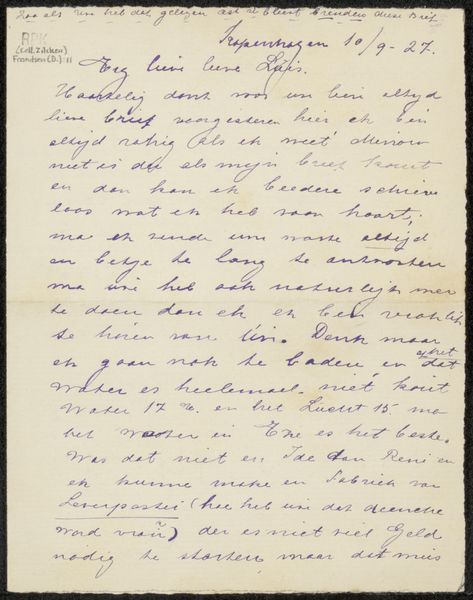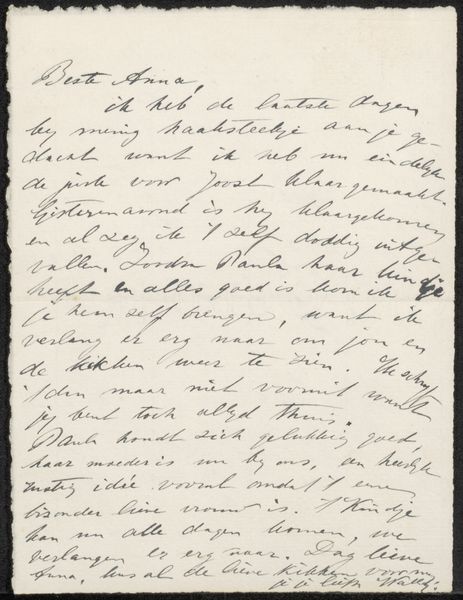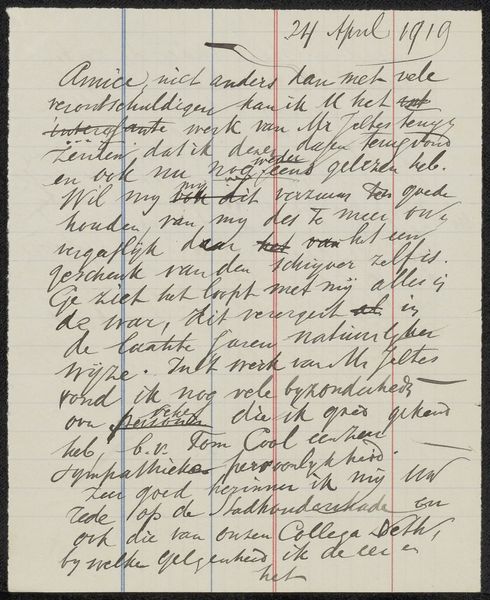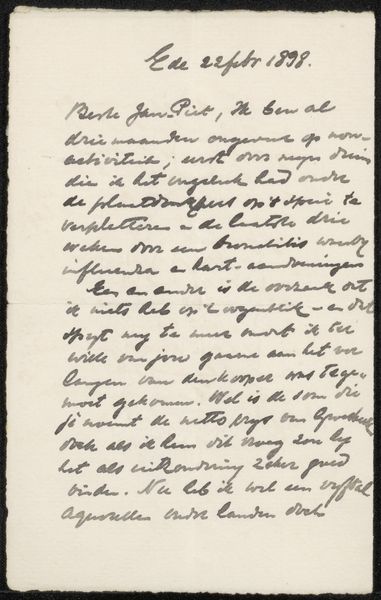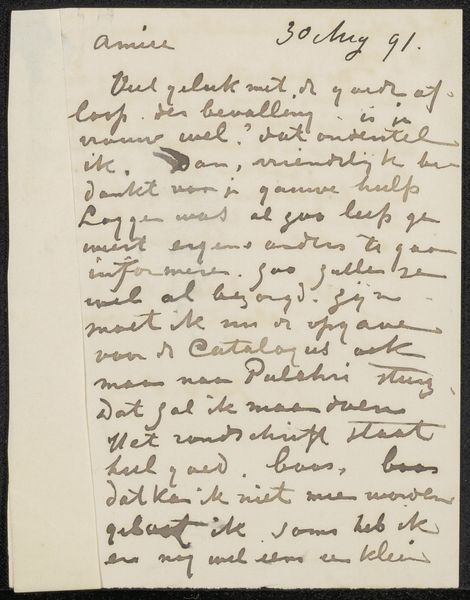
Brief aan Philip Zilcken en Henriette Wilhelmina van Baak Possibly 1911 - 1922
0:00
0:00
#
hand-lettering
#
hand drawn type
#
hand lettering
#
personal sketchbook
#
hand-drawn typeface
#
pen work
#
sketchbook drawing
#
handwritten font
#
sketchbook art
#
small lettering
Copyright: Rijks Museum: Open Domain
Curator: This is a letter by Hélène van Goethem, likely dating between 1911 and 1922, titled "Brief aan Philip Zilcken en Henriette Wilhelmina van Baak." It’s all done in handwriting, and I find that quite interesting. What strikes you about it? Editor: Well, initially it just looks like… a letter! It's interesting to see handwriting as the complete artwork. What can we really glean from it? I'm curious how the materials—pen and ink on paper—affect its meaning or context. Curator: Precisely! Consider the social context of letter writing at that time. Handwriting was the primary form of communication. What does the choice of handwriting as an art form tell us about Goethem’s perception of craft versus "high art?" The labor involved, the intimacy… these are significant considerations. Editor: I see your point. Was she making a statement about the value of traditionally "feminine" crafts by elevating the handwritten letter? Or about challenging notions of labor and value within art production? Curator: Possibly both. By choosing such a common and utilitarian method, she directly engages with the politics of production and reception. Consider the recipient; were they also involved in similar explorations of craft and materiality? Editor: So it becomes about elevating everyday exchange and challenging preconceived categories. It’s definitely a different perspective than just thinking about the aesthetics! Curator: Exactly. Examining the materiality and its context forces us to rethink what constitutes art and who decides its value. It challenges a more traditional understanding of 'artistic skill'. Editor: I guess looking at art this way shows you that the means and act of creation can be just as meaningful as the final result. I had not considered the historical context of her work; this context changes the way I perceived the message, beyond its immediate visual appeal. Curator: Indeed, paying attention to materials and the processes through which an art object came into existence makes the whole experience a lot richer.
Comments
No comments
Be the first to comment and join the conversation on the ultimate creative platform.
